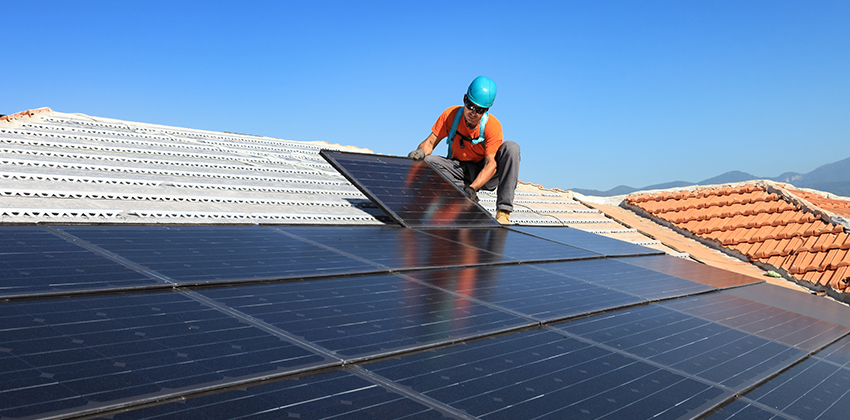The Total Overview to Solar Power Setup: Save Money and Go Environment-friendly
Discovering the subtleties of solar power installation exposes a diverse method to both expense savings and environmental obligation. Homeowners are significantly taking into consideration solar power not only as a practical alternative yet as a tactical financial investment that can yield substantial lasting advantages. The procedure entails mindful factor to consider of numerous variables, including system choice and installation treatments. Recognizing these aspects is critical for making the most of effectiveness and savings. What particular steps should one take to guarantee an effective change to solar energy, and how can monetary rewards additionally improve this undertaking?
Advantages of Solar Power
The growing adoption of solar power reflects a substantial change toward sustainability and environmental duty. Among the main advantages of solar power is its capability to reduce dependence on fossil gas, bring about reduced greenhouse gas emissions. By utilizing the sunlight's power, individuals and businesses can contribute to a cleaner atmosphere and alleviate the adverse impacts of climate modification.
Additionally, solar energy can cause considerable monetary savings. As soon as installed, solar panels substantially reduced electrical energy costs, as they produce power from a sustainable resource. Lots of federal governments likewise use motivations, discounts, and tax credit reports to urge solar fostering, even more boosting economic practicality.
An additional significant benefit is energy self-reliance. Solar power systems allow home owners and organizations to create their own electrical energy, decreasing vulnerability to rising and fall energy prices and supply disruptions. Additionally, solar power systems need very little maintenance, equating to lower lasting operational costs.
Picking the Right Planetary System

Solar systems differ significantly in rate depending on their kind, size, and efficiency. Think about prospective financing options such as fundings, leases, or power acquisition arrangements (PPAs) that may minimize ahead of time prices.
Available room is an additional important variable. Assess your roofing's positioning, angle, and shading, as these elements can influence solar panel efficiency. If roof room is minimal or improper, ground-mounted systems may be a sensible option.
It's vital to carry out extensive research to comprehend the details rewards available in your location, as they can differ widely. Consulting with a solar installation specialist can aid you browse these choices properly, guaranteeing you maximize your financial savings while adding to a more lasting energy future.
Keeping Your Solar System
Reliable maintenance is essential for making sure the long life and optimal efficiency of your solar power system. Routine upkeep can aid prevent small problems from intensifying right into costly repair services and guarantee try this website maximum energy performance.
Begin with routine examinations of your photovoltaic panels, ideally every 6 months. Search for dust, particles, or any signs of deterioration. best solar energy company in fort lauderdale. Cleansing the panels, particularly in locations prone to dirt or bird droppings, can considerably enhance energy manufacturing. Make use of a soft brush and moderate cleaning agent to prevent harming the surface.
Following, keep an eye on the inverter. This element converts solar energy right into useful electrical energy and ought to be examined monthly. A lot of modern inverters have keeping an eye on systems that alert you to performance issues, permitting timely intervention.
Additionally, examine the electrical wiring and connections for any indications of corrosion or damages, as these can result in lowered effectiveness or system failing. Take website here into consideration expert upkeep solutions every year for an extensive check-up.
Conclusion
In verdict, the adoption of solar energy offers substantial benefits, including lowered electrical energy prices and a positive ecological influence. Careful consideration in selecting the suitable solar system, coupled with a clear understanding of the installation process, improves the general experience. Financial rewards and routine maintenance further add to try these out the long-lasting benefits of solar energy. Ultimately, welcoming solar innovation stands for a crucial action towards sustainability and energy self-reliance, promoting a greener future for all.